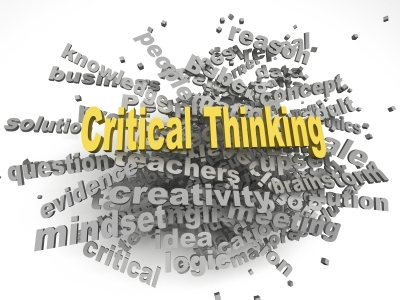An article from the Washington Post entitled Tests Don’t Measure Critical Thinking, makes the case that the purpose – the calling – of a teacher is to teach critical thinking skills and that you can’t test for them. Leaving the politics aside, this article to speaks to one of the greatest gaps facing IT organizations today – the lack of critical thinking skills.
The current reliance on and demand for “best practices” is a case in point. It seems that everyone thinks that you can simply take what worked someplace else, copy it and instantly realize the same results. It just doesn’t happen.
The authors of ITIL v3 actually went to some pains to try to make this point. They took to calling them “Good Practices” as a way to drive home the message that “your mileage may vary.” There are countless examples of this. ITIL holds itself out as a “framework” and there is a steady stream of guidance to “adopt and adapt” ITIL. Lean approaches are centered on getting close to your problem to let the solution present itself. Six Sigma uses statistical analysis to pinpoint defects and how to eliminate them. In none of these cases is there the idea that you can simply copy what works someplace else and expect it to solve all of your problems.
Yet, the desire to find that magical cure-all persists.
I believe that the reason is simple. Critical thinking is hard. It requires that you not simply follow a recipe (the book says so!), but that you actually know the specific thing you hope to achieve, that you think about what is stopping you from achieving it and then apply those brain cells to come up with a solution. Should you educate yourself on what has worked elsewhere (ITIL, Analyst reports)? Of course. Should you avail yourself of tools and techniques that can help you assess the situation (Lean, Six Sigma, etc.)? Obviously.
But in the end, the solution must be yours. And it must be tailored to your unique organization and situation. Anything else is just a cop out. There is simply no replacement for critical thinking and analytical skills. They are one of the few things that will separate you as you compete in The Quantum Age. I’d say, in fact, that your critical thinking skills are, well, critical.
About the Author:





